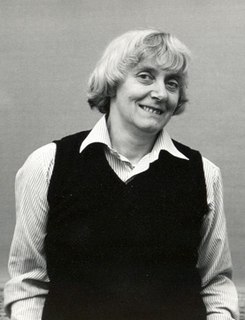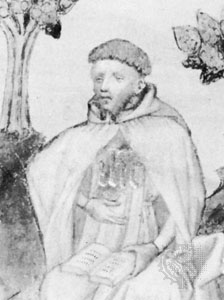A Quote by Maureen Duffy
We develop all our sciences, archeology, cosmology, psychology, we tabulate and classify and cling to our sacred definitions, our divisions, without any attempt to synthesis, without the humility to see that these are only parts of a total knowledge. ... But somehow we ought to be able to keep the idea of the totality of experience and knowledge at the back of our minds even though the front's busy from morning til night with the life cycle of the liver fluke.
Related Quotes
Let us see that our knowledge of Christ be not a powerless, barren, unpractical knowledge: O that, in its passage from our understanding to our lips, it might powerfully melt, sweeten, and ravish our hearts! Remember, brethren, a holy calling never saved any man, without a holy heart; if our tongues only be sanctified, our whole man must be damned. We must be judged by the same gospel, and stand at the same bar, and be sentenced to the same terms, and dealt with as severely as any other men.
One problem with our current society is that we have an attitude towards education as if it is there to simply make you more clever, make you more ingenious... Even though our society does not emphasize this, the most important use of knowledge and education is to help us understand the importance of engaging in more wholesome actions and bringing about discipline within our minds. The proper utilization of our intelligence and knowledge is to effect changes from within to develop a good heart.
Could many of our ills today have resulted from our failure to train a strong citizenry from the only source we have - the boys and girls of each community? Have they grown up to believe in politics without principle, pleasure without conscience, knowledge without effort, wealth without work, business without morality, science without humanity, worship without sacrifice?
Knowledge signifies things known. Where there are no things known, there is no knowledge. Where there are no things to be known, there can be no knowledge. We have observed that every science, that is, every branch of knowledge, is compounded of certain facts, of which our sensations furnish the evidence. Where no such evidence is supplied, we are without data; we are without first premises; and when, without these, we attempt to build up a science, we do as those who raise edifices without foundations. And what do such builders construct? Castles in the air.
The endless cycle of idea and action, Endless invention, endless experiment, Brings knowledge of motion, but not of stillness; Knowledge of speech, but not of silence; Knowledge of words, and ignorance of the Word. All our knowledge brings us nearer to our ignorance, All our ignorance brings us nearer to death, But nearness to death no nearer to God. Where is the Life we have lost in living? Where is the wisdom we have lost in knowledge? Where is the knowledge we have lost in information? The cycles of Heaven in twenty centuries Bring us farther from God and nearer to the Dust.
How do we allow God into our minds, bodies, relationships, and life? We stop squeezing the divine out through our preconceived notions of what is sacred and what is profane. When we assume the mind-set that everything is ultimately divine, though sometimes more disguised than others, then we can see that all of our thoughts, impulses, and desires arise from and can bring us back to awareness of the sacred.
Without knowledge of self there is no knowledge of God Our wisdom, in so far as it ought to be deemed true and solid Wisdom, consists almost entirely of two parts: the knowledge of God and of ourselves. But as these are connected together by many ties, it is not easy to determine which of the two precedes and gives birth to the other.
The commandment of God is, that we love Our Lord in all our heart, in all our soul, in all our thought. In all our heart; that is, in all our understanding without erring. In all our soul; that is, in all our will without gainsaying. In all our their ought; that is, that we think on Him without forgetting. In this manner is very love and true, that is work of man's will. For love is a willful stirring of our thoughts unto God, so that it receive nothing that is against the love of Jesus Christ, and therewith that it be lasting in sweetness of devotion; and that is the perfection of this life.
Even though its common knowledge these days, it never ceases to amaze me that all the richness of our mental life - all our feelings, our emotions, our thoughts, our ambitions, our love life, our religious sentiments and even what each of us regards us his own intimate private self - is simply the activity of these little specks of jelly in your head, in your brain. There is nothing else.
Spirituality is an inner fire, a mystical sustenance that feeds our souls. The mystical journey drives us into ourselves, to a sacred flame at our center. The purpose of the religious experience is to develop the eyes by which we see this inner flame, and our capacity to live its mystery. In its presence, we are warmed and ignited. When too far from the blaze, we are cold and spiritually lifeless. We are less than human without that heat. Our connection to God is life itself.
The totality of our so-called knowledge or beliefs, from the most casual matters of geography and history to the profoundest laws of atomic physics or even of pure mathematics and logic, is a man-made fabric which impinges on experience only along the edges. Or, to change the figure, total science is like a field of force whose boundary conditions are experience.







































